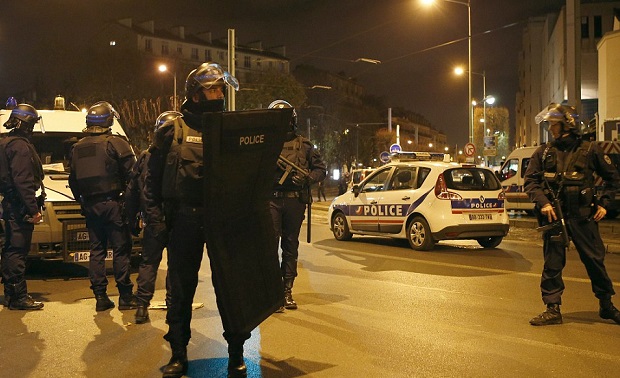BY AJIBOLA OLUYEDE
A clearly orchestrated tirade against the Supreme Court of Nigeria in respect of its acceptance of an undertaking by the counsel to the Respondent in the Saraki Appeal has come to my attention following two days of consistent bashing of the Court for daring to do the unthinkable by scuttling the politically motivated stampede to remove Bukola Saraki from his position as Senate President through a wholly unconstitutional trial at the Code of Conduct Tribunal.
Concerning my submission that the Code of Conduct Tribunal’s trial of Bukola Sraki is unconstitutional, I will address that in another forum. For now, I wish to respond to the clearly misconceived notion that the Administration of Criminal Justice Act can be used to oust the power of the courts to grant stay of proceedings in criminal trials.
The issue as formulated by the leader of the charge goes as follows:
“It is unfathomable that the Supreme Court decided to return the country to the status quo ante in a rather brazen and bizzare manner. Given the ouster clause contained in section 306 of the AJCS(sic), the Code of Conduct Tribunal ought not to have delivered its ruling in respect of the preliminary objections filed by Dr. Saraki” – Femi Falana (SAN).
Advertisement
Highly respected Professor Itse Sagay (SAN) was also quoted by the media as having said that “The new Administration of Criminal Justice Act has completely eliminated any application or grant of stay of actions or proceedings in criminal trials; it prohibits it. So, what the Supreme Court has done is illegal and it is shocking that the Supreme Court would indulge in illegalities”.
Both eminent lawyers are intolerably wrong and thus give the impression that their per incuriam opinions could only have been motivated by prejudice and not by their well known life long struggle for the public good.
Indeed the manner in which their respected opinions have rabble-roused a surge of public opinion against the apex court in respect of an issue which is still sub-judice smacks, in my humble opinion, of criminal contempt..
Advertisement
It is in this context that I join issues with them on the matter as follows:
Section 306 of the ACJA is unconstitutional null and void in so far as it seeks to limit the exercise of judicial powers vested in the courts by section 6 of the Constitution of the Federal Republic of Nigeria 1999 as amended.
Ayoola JCA (as he then was) in NNPC V Fawehinmi [1998] 7NWLR (PART 559) 598 at 612E-H echoed an age old principle of separation of powers when he said “Other than in consonance with the constitution itself, legislative provisions which preclude the judiciary from exercising judicial powers violate the separation of powers principle enshrined in section 6 of the Constitution”
Relying on the above dictum Omoleye JCA in Njikoye V MTN [2008] 9 NWLR (part 1092) 339 at 369 F-H also stated that “..the courts would disregard any statute that seeks to regulate and obliterate their judicial powers conferred on them by the express provisions of the Constitution, the supreme and grund norm iof Nigeria. ….. An enactment will therefore be considered opposed to the constitutional provisions vesting judicial powers in a court if: it … purported to remove judicial powers vested in the court or redefine it in a way as to whittle it or limit the extent of the power vested or conferred on the court by the Constitution.”
Advertisement
What this means is that no legislature in Nigeria has the power to enact legislation that limits the exercise of judicial power or (as Falana states in his submission) constitute an “ouster clause”.
With regard to ouster clauses (although I do not agree that section 306 is one) Section 4(8) of the Constitution expressly forbids it and disempowers the legislature from making any such law.
To do so the legislature would have to amend the Constitution and that procedure is not the same as the mere passing of a bill into law as was done with the ACJA.
It is therefore more strange and bizarre that any lawyer would castigate the apex court or any court for that matter for ignoring the so called “ouster clause” constituted by Section 306 of the ACJA especially as it expressly conflicts with the powers donated to the judiciary by the constitution, part of which is the power to order stay of any proceedings.
Advertisement
In this regard the Fundamental Rights Enforcement Procedure Rules 2009 expressly provide in Order 4 Rule 4(iv) that the Civil Rights Court may “Grant injunction restraining the Respondent from taking further steps in connection with the matter or maintaining status quo or staying all actions pending the determination of [a Fundamental Rights] Application”
In Order XI of the same rules it is provided that the Civil Rights Court may “At the hearing of any [fundamental right]s application, under these rules, …. Make such orders, issue such writs and give such directions as it may consider just or appropriate for the purpose of enforcing or securing the enforcement of any of the Fundamental Rights provided for in the Constitution or African Charter on Human and Peoples Rights (Ratification and Enforcement) Act to which the applicant may be entitled”
Advertisement
Katsina Alu JCA (as he then was) in the case of Abia State University V Anyaibe [1996] 3 NWLR (PART 439) 646 at 661 E-F said of the Fundamental Rights Enforcement Procedure Rules as follows: “Since the Rules have the force of law as the Constitution itself, it overrides the provisions of any other enactment which seeks to provide ‘an alternative'”
Therefore in my humble submission it is erroneous for anyone to state that it is illegal to grant a stay of proceedings in criminal proceedings.
Advertisement
The criminal court may ignore the provisions of section 306 in so far as it limits its ability to do justice in any worthy case and certainly an appellate court that perceives that something is wrong with any criminal proceedings may order its stay not withstanding the provisions of section 306 o0f the ACJA and if it becomes an issue may infact set aside the section as invalid null and void.
Furthermore a Civil Rights court before whom a complaint is made that a criminal proceedings infringes on any of the fundamental righst in chapter iv of the Constitution certainly has the power donated expressly by the constitution to intervene and the provisions of section 306 of the ACJA would not be of any moment in that circumstance given the superiority of the Constitution to the ACJA.
Care must be taken by the Buhari Government and its advisers not to end up reducing the judiciary to irrelevance under the cover of this “war against corruption”.
Advertisement
Whereas everyone agrees that it is necessary to root out the plague of corruption from this country the method by which that is to be done must not be at the expense of the integrity of the institutions of democracy. The idea to limit the power of the courts to grant stay of proceedings in criminal trials is apparently rooted in the perception that judges cannot be trusted to do the right thing in Nigeria because of corruption this cannot be the appropriate way to root out the corruption in the judiciary. It is equivalent to enacting a law forbidding the President from approving expenditure because we believe that politicians are corrupt. That would only bring governance to a halt. The hue and cry about the efficacy of section 306 today is because those who favour it are not themselves judges. If they were, they probably would frown on a law that already labels them as incompetent to rightly exercise discretion or corrupt before they had a chance to show their mettle.
It must be borne in mind that the fight against corruption is a worldwide fight as evidenced by the United Nations Convention against Corruption 2003 and the ECOWAS protocol on the fight against corruption 1993 both of which Nigeria is signatory to. The methods are stated in those conventions and they include a strengthening of the institutions of democracy and not the whittling down of their efficacy, authority or powers. I wonder why Nigeria’s case is always negatively different.
Furthermore abuse of office and the illegal instigation of criminal processes are required by Articles 17 and 25 of the UN Convention to be criminalized by signatories as corrupt practices. If the Supreme Court perceives that the criminal proceedings against Senator Saraki might have been improperly instigated for any reason it is obliged to join in the fight against corruption by stopping it completely and to this end may properly stay proceedings until it is satisfied that its perception is wrong.
I congratulate the Supreme Court for braving the mob hysteria, which appears to be the hallmark of this new fight against corruption, to do the right thing.
Add a comment






